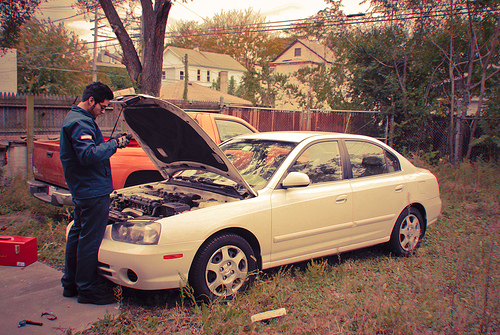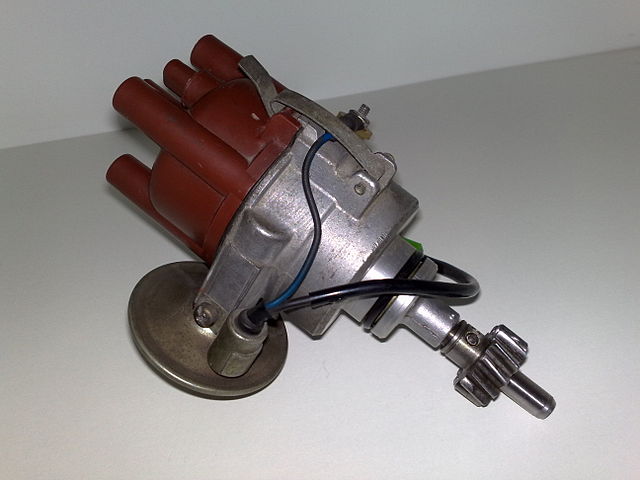What is an Automotive Service Technician?
An automotive service technician performs various maintenance and repair operations on automobiles of all kinds. People with this occupation are also known as mechanics, automotive technicians, service techs, and other similar titles. There is no one single way to become an automotive service technician, although a high school education and vocational training can help.
The median annual salary for this occupation was about $35,000 in 2010, although pay is often commission-based. The ten year outlook for this occupation looks good, as this type of job is expected to expand by nearly 20 percent in that time frame, according to the Bureau of Labor Statistics.
Contents
Quick Automotive Service Technician Facts and Figures
Education: High school diploma (may not be necessary)
Training: Vocational, on the job
Experience: None
Median Salary: $35,000
What Does a Automotive Service Technician Do?
Some of the most common duties of an automotive service technician include:
- Maintenance operations
- Diagnostics
- Repairing or replacing broken components
- Disassembly and reassembly of systems and components
- Using computer systems and diagnostic tools
- Communicating with employers, fellow technicians, and customers
The specific duties of an automotive service technician can vary from one job position to another. Depending on the shop where the technician is employed, he or she may work on various engine systems, transmissions, air conditioning, and other components and systems. Many of these systems are mechanical in nature, but successful automotive technicians also have to be familiar with computer systems and electronically-controlled components.
In most cases, an automotive service technician is expected to own and maintain his or her own tools. This includes traditional wrenches, sockets, and other tools for repairing and maintaining mechanical systems, but it may also include computer diagnostic tools.
Some shops are specialized to one field or another, and some general repair shops also employ technicians who specialize in one specific field. Some specialist technician jobs include:
- Air conditioning techs
- Brake repairers
- Front-end mechanics
- Transmission technicians
- Transmission rebuilders
- Electrical technicians
- Electrical rebuilders
How do I Become a Automotive Service Technician?
There is no single path you need to follow if you want to become an automotive service technician, but there are a few different ways you may go about it. Most employers look for a high school diploma or equivalent, so your first step is to finish that part of your education. If you are still in high school, then you may want to seek part-time employment at a shop in an entry-level capacity. If you have graduated from high school, then you can either seek that type of entry-level job or seek vocational training.
Although it is possible to become an automotive service technician without any special training, a vocational school will prepare you for this type of job, and it may also help you secure a position after you graduate. Before you choose a school, it is a good idea to see if there are any programs with local shops or dealerships that will provide you with real-world experience or potential work after you graduate.
If you are really serious about becoming an automotive technician, then it can also help to own your own tools. That doesn’t mean you have to spend thousands of dollars on a complete tool set, but you will typically be expected to have your own basic tool set, some specialty tools, and some computer diagnostic tools, depending on the job that you are trying to obtain.
What are the Future Job Prospects for Automotive Service Technicians?
The future job prospects for automotive service technicians look good. According to the Bureau of Labor Statistics, this job is expected to grow by about 17 percent in the next ten years. The job may change a great deal over that time period, but technicians who keep up with continuing education should be able to find employment.







